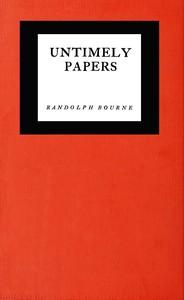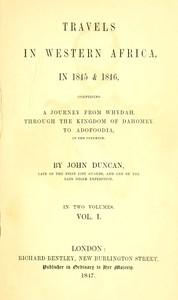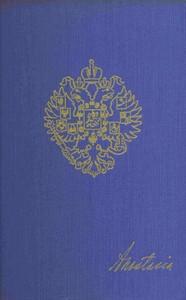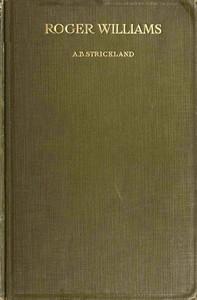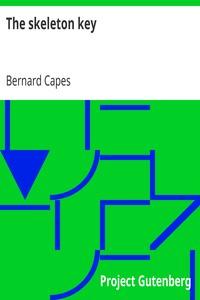|
|
Read this ebook for free! No credit card needed, absolutely nothing to pay.Words: 39300 in 5 pages
This is an ebook sharing website. You can read the uploaded ebooks for free here. No credit cards needed, nothing to pay. If you want to own a digital copy of the ebook, or want to read offline with your favorite ebook-reader, then you can choose to buy and download the ebook.

: Untimely papers by Bourne Randolph Silliman Oppenheim James Editor - World War 1914-1918; State The; American essays 20th century@FreeBooksThu 08 Jun, 2023 ich requires recognition of economic internationalism far more than of political internationalism, an idea is reactionary which proposes to petrify and federate the nations as political and economic units. Such a scheme for international order is a dubious justification for American policy. And if American policy had been sincere in its belief that our participation would achieve international beatitude, would we not have made our entrance into the war conditional upon a solemn general agreement to respect in the final settlement these principles of international order? Could we have afforded, if our war was to end war by the establishment of a league of honor, to risk the defeat of our vision and our betrayal in the settlement? Yet we are in the war, and no such solemn agreement was made, nor has it even been suggested. The case of the intellectuals seems, therefore, only very speciously rational. They could have used their energy to force a just peace or at least to devise other means than war for carrying through American policy. They could have used their intellectual energy to ensure that our participation in the war meant the international order which they wish. Intellect was not so used. It was used to lead an apathetic nation into an irresponsible war, without guarantees from those belligerents whose cause we were saving. The American intellectual, therefore, has been rational neither in his hindsight nor his foresight. To explain him we must look beneath the intellectual reasons to the emotional disposition. It is not so much what they thought as how they felt that explains our intellectual class. Allowing for colonial sympathy, there was still the personal shock in a world-war which outraged all our preconceived notions of the way the world was tending. It reduced to rubbish most of the humanitarian internationalism and democratic nationalism which had been the emotional thread of our intellectuals' life. We had suddenly to make a new orientation. There were mental conflicts. Our latent colonialism strove with our longing for American unity. Our desire for peace strove with our desire for national responsibility in the world. That first lofty and remote and not altogether unsound feeling of our spiritual isolation from the conflict could not last. There was the itch to be in the great experience which the rest of the world was having. Numbers of intelligent people who had never been stirred by the horrors of capitalistic peace at home were shaken out of their slumber by the horrors of war in Belgium. Never having felt responsibility for labor wars and oppressed masses and excluded races at home, they had a large fund of idle emotional capital to invest in the oppressed nationalities and ravaged villages of Europe. Hearts that had felt only ugly contempt for democratic strivings at home beat in tune with the struggle for freedom abroad. All this was natural, but it tended to over-emphasize our responsibility. And it threw our thinking out of gear. The task of making our own country detailedly fit for peace was abandoned in favor of a feverish concern for the management of the war, advice to the fighting governments on all matters, military, social and political, and a gradual working up of the conviction that we were ordained as a nation to lead all erring brothers towards the light of liberty and democracy. The failure of the American intellectual class to erect a creative attitude toward the war can be explained by these sterile mental conflicts which the shock to our ideals sent raging through us. Mental conflicts end either in a new and higher synthesis or adjustment, or else in a reversion to more primitive ideas which have been outgrown but to which we drop when jolted out of our attained position. The war caused in America a recrudescence of nebulous ideals which a younger generation was fast outgrowing because it had passed the wistful stage and was discovering concrete ways of getting them incarnated in actual institutions. The shock of the war threw us back from this pragmatic work into an emotional bath of these old ideals. There was even a somewhat rarefied revival of our primitive Yankee boastfulness, the reversion of senility to that republican childhood when we expected the whole world to copy our republican institutions. We amusingly ignored the fact that it was just that Imperial German r?gime, to whom we are to teach the art of self-government, which our own Federal structure, with its executive irresponsible in foreign policy and with its absence of parliamentary control, most resembles. And we are missing the exquisite irony of the unaffected homage paid by the American democratic intellectuals to the last and most detested of Britain's tory premiers as the representative of a "liberal" ally, as well as the irony of the selection of the best hated of America's bourbon "old guard" as the missionary of American democracy to Russia. The intellectual state that could produce such things is one where reversion has taken place to more primitive ways of thinking. Simple syllogisms are substituted for analysis, things are known by their labels, our heart's desire dictates what we shall see. The American intellectual class, having failed to make the higher syntheses, regresses to ideas that can issue in quick, simplified action. Thought becomes any easy rationalization of what is actually going on or what is to happen inevitably to-morrow. It is true that certain groups did rationalize their colonialism and attach the doctrine of the inviolability of British sea-power to the doctrine of a League of Peace. But this agile resolution of the mental conflict did not become a higher synthesis, to be creatively developed. It gradually merged into a justification for our going to war. It petrified into a dogma to be propagated. Criticism flagged and emotional propaganda began. Most of the socialists, the college professors and the practitioners of literature, however, have not even reached this high-water mark of synthesis. Their mental conflicts have been resolved much more simply. War in the interests of democracy! This was almost the sum of their philosophy. The primitive idea to which they regressed became almost insensibly translated into a craving for action. War was seen as the crowning relief of their indecision. At last action, irresponsibility, the end of anxious and torturing attempts to reconcile peace-ideals with the drag of the world towards Hell. An end to the pain of trying to adjust the facts to what they ought to be! Let us consecrate the facts as ideal! Let us join the greased slide towards war! The momentum increased. Hesitations, ironies, consciences, considerations,--all were drowned in the elemental blare of doing something aggressive, colossal. The new-found Sabbath "peacefulness of being at war"! The thankfulness with which so many intellectuals lay down and floated with the current betrays the hesitation and suspense through which they had been. The American university is a brisk and happy place these days. Simple, unquestioning action has superseded the knots of thought. The thinker dances with reality. With how many of the acceptors of war has it been mostly a dread of intellectual suspense? It is a mistake to suppose that intellectuality necessarily makes for suspended judgments. The intellect craves certitude. It takes effort to keep it supple and pliable. In a time of danger and disaster we jump desperately for some dogma to cling to. The time comes, if we try to hold out, when our nerves are sick with fatigue, and we seize in a great healing wave of release some doctrine that can be immediately translated into action. Neutrality meant suspense, and so it became the object of loathing to frayed nerves. The vital myth of the League of Peace provides a dogma to jump to. With war the world becomes motor again and speculation is brushed aside like cobwebs. The blessed emotion of self-defense intervenes too, which focused millions in Europe. A few keep up a critical pose after war is begun, but since they usually advise action which is in one-to-one correspondence with what the mass is already doing, their criticism is little more than a rationalization of the common emotional drive. The results of war on the intellectual class are already apparent. Their thought becomes little more than a description and justification of what is going on. They turn upon any rash one who continues idly to speculate. Once the war is on, the conviction spreads that individual thought is helpless, that the only way one can count is as a cog in the great wheel. There is no good holding back. We are told to dry our unnoticed and ineffective tears and plunge into the great work. Not only is every one forced into line, but the new certitude becomes idealized. It is a noble realism which opposes itself to futile obstruction and the cowardly refusal to face facts. This realistic boast is so loud and sonorous that one wonders whether realism is always a stern and intelligent grappling with realities. May it not be sometimes a mere surrender to the actual, an abdication of the ideal through a sheer fatigue from intellectual suspense? The pacifist is roundly scolded for refusing to face the facts, and for retiring into his own world of sentimental desire. But is the realist, who refuses to challenge or criticize facts, entitled to any more credit than that which comes from following the line of least resistance? The realist thinks he at least can control events by linking himself to the forces that are moving. Perhaps he can. But if it is a question of controlling war, it is difficult to see how the child on the back of a mad elephant is to be any more effective in stopping the beast than is the child who tries to stop him from the ground. The ex-humanitarian, turned realist, sneers at the snobbish neutrality, colossal conceit, crooked thinking, dazed sensibilities, of those who are still unable to find any balm of consolation for this war. We manufacture consolations here in America while there are probably not a dozen men fighting in Europe who did not long ago give up every reason for their being there except that nobody knew how to get them away. But the intellectuals whom the crisis has crystallized into an acceptance of war have put themselves into a terrifyingly strategic position. It is only on the craft, in the stream, they say, that one has any chance of controlling the current forces for liberal purposes. If we obstruct, we surrender all power for influence. If we responsibly approve, we then retain our power for guiding. We will be listened to as responsible thinkers, while those who obstructed the coming of war have committed intellectual suicide and shall be cast into outer darkness. Criticism by the ruling powers will only be accepted from those intellectuals who are in sympathy with the general tendency of the war. Well, it is true that they may guide, but if their stream leads to disaster and the frustration of national life, is their guiding any more than a preference whether they shall go over the right-hand or the left-hand side of the precipice? Meanwhile, however, there is comfort on board. Be with us, they call, or be negligible, irrelevant. Dissenters are already excommunicated. Irreconcilable radicals, wringing their hands among the d?bris, become the most despicable and impotent of men. There seems no choice for the intellectual but to join the mass of acceptance. But again the terrible dilemma arises,--either support what is going on, in which case you count for nothing because you are swallowed in the mass and great incalculable forces bear you on; or remain aloof, passively resistant, in which case you count for nothing because you are outside the machinery of reality. Is there no place left, then, for the intellectual who cannot yet crystallize, who does not dread suspense, and is not yet drugged with fatigue? The American intellectuals, in their preoccupation with reality, seem to have forgotten that the real enemy is War rather than imperial Germany. There is work to be done to prevent this war of ours from passing into popular mythology as a holy crusade. What shall we do with leaders who tell us that we go to war in moral spotlessness, or who make "democracy" synonymous with a republican form of government? There is work to be done in still shouting that all the revolutionary by-products will not justify the war, or make war anything else than the most noxious complex of all the evils that afflict men. There must be some to find no consolation whatever, and some to sneer at those who buy the cheap emotion of sacrifice. There must be some irreconcilables left who will not even accept the war with walrus tears. There must be some to call unceasingly for peace, and some to insist that the terms of settlement shall be not only liberal but democratic. There must be some intellectuals who are not willing to use the old discredited counters again and to support a peace which would leave all the old inflammable materials of armament lying about the world. There must still be opposition to any contemplated "liberal" world-order founded on military coalitions. The "irreconcilable" need not be disloyal. He need not even be "impossibilist." His apathy towards war should take the form of a heightened energy and enthusiasm for the education, the art, the interpretation that make for life in the midst of the world of death. The intellectual who retains his animus against war will push out more boldly than ever to make his case solid against it. The old ideals crumble; new ideals must be forged. His mind will continue to roam widely and ceaselessly. The thing he will fear most is premature crystallization. If the American intellectual class rivets itself to a "liberal" philosophy that perpetuates the old errors, there will then be need for "democrats" whose task will be to divide, confuse, disturb, keep the intellectual waters constantly in motion to prevent any such ice from ever forming. BELOW THE BATTLE He is one of those young men who, because his parents happened to mate during a certain ten years of the world's history, has had now to put his name on a wheel of fate, thereby submitting himself to be drawn into a brief sharp course of military training before being shipped across the sea to kill Germans or be killed by them. He does not like this fate that menaces him, and he dislikes it because he seems to find nothing in the programme marked out for him which touches remotely his aspirations, his impulses, or even his desires. My friend is not a happy young man, but even the unsatisfactory life he is living seems supplemented at no single point by the life of the drill-ground or the camp or the stinking trench. He visualizes the obscenity of the battlefield and turns away in nausea. He thinks of the weary regimentation of young men, and is filled with disgust. His mind has turned sour on war and all that it involves. He is poor material for the military proclamation and the drill-sergeant. I want to understand this friend of mine, for he seems rather typical of a scattered race of young Americans of to-day. He does not fall easily into the categories of patriot and coward which the papers are making popular. He feels neither patriotism nor fear, only an apathy toward the war, faintly warmed into a smoldering resentment at the men who have clamped down the war-pattern upon him and that vague mass of people and ideas and workaday living around him that he thinks of as his country. Now that resentment has knotted itself into a tortured tangle of what he should do, how he can best be true to his creative self? I should say that his apathy cannot be imputed to cowardly ease. My friend earns about fifteen hundred dollars a year as an architect's assistant, and he lives alone in a little room over a fruitshop. He worked his way through college, and he has never known even a leisurely month. There is nothing Phaeacian about his life. It is scarcely to save his skin for riotous living that he is reluctant about war. Since he left college he has been trying to find his world. He is often seriously depressed and irritated with himself for not having hewed out a more glorious career for himself. His work is just interesting enough to save it from drudgery, and yet not nearly independent and exacting enough to give him a confident professional sense. Outside his work, life is deprived and limited rather than luxurious. He is fond of music and goes to cheap concerts. He likes radical meetings, but never could get in touch with the agitators. His friends are seeking souls just like himself. He likes midnight talks in caf?s and studios, but he is not especially amenable to drink. His heart of course is hungry and turbid, but his two or three love-affairs have not clarified anything for him. He eats three rather poor restaurant meals a day. When he reads, it is philosophy--Nietzsche, James, Bergson--or the novels about youth--Rolland, Nex?, Cannan, Frenssen, Beresford. He has a rather constant mood of futility, though he is in unimpeachable health. There are moments when life seems quite without sense or purpose. He has enough friends, however, to be not quite lonely, and yet they are so various as to leave him always with an ache for some more cohesive, purposeful circle. His contacts with people irritate him without rendering him quite unhopeful. He is always expecting he doesn't know quite what, and always being frustrated of he doesn't quite know what would have pleased him. Perhaps he never had a moment of real external or internal ease in his life. Obviously a creature of low vitality, with neither the broad vision to be stirred by the President's war-message, nor the red blood to itch for the dummy bayonet-charge. Yet somehow he does not seem exactly weak, and there is a consistency about his attitude which intrigues me. Since he left college eight years ago, he has been through most of the intellectual and emotional fads of the day. He has always cursed himself for being so superficial and unrooted, and he has tried to write a little of the thoughts that stirred him. What he got down on paper was, of course, the usual large vague feeling of a new time that all of us feel. With the outbreak of the Great War, most of his socialist and pacifist theories were knocked flat. The world turned out to be an entirely different place from what he had thought it. Progress and uplift seemed to be indefinitely suspended, though it was a long time before he realized how much he had been corroded by the impact of news and the endless discussions he heard. I think he gradually worked himself into a truly neutral indifference. The reputable people and the comfortable classes who were having all the conventional emotions rather disgusted him. The neurotic fury about self-defense seemed to come from types and classes that he instinctively detested. He was not scared, and somehow he could not get enthusiastic about defending himself with "preparedness" unless he were badly scared. Things got worse. All that he valued seemed frozen until the horrible mess came to a close. He had gone to an unusually intelligent American college, and he had gotten a feeling for a humane civilization that had not left him. The war, it is true, bit away piece by piece every ideal that made this feeling seem plausible. Most of the big men--intellectuals--whom he thought he respected had had so much of their idealism hacked away and got their nerves so frayed that they became at last, in their panic, willing and even eager to adopt the war-technique in aid of their government's notions of the way to impose democracy on the world. Free books android app tbrJar TBR JAR Read Free books online gutenberg More posts by @FreeBooks
: Travels in Western Africa in 1845 & 1846 Volume 1 (of 2) comprising a journey from Whydah through the Kingdom of Dahomey to Adofoodia in the interior by Duncan John - Africa West Description and travel; Benin Description and travel@FreeBooksThu 08 Jun, 2023

: Anastasia: The autobiography of H.I.H. the Grand Duchess Anastasia Nicholaevna of Russia by Smith Eugenia Anastasiia Nikolaevna Grand Duchess Daughter Of Nicholas II Emperor Of Russia Dubious Author - Anastasiia Nikolaevna Grand Duchess daughter of Nichola@FreeBooksThu 08 Jun, 2023
|
Terms of Use Stock Market News! © gutenberg.org.in2025 All Rights reserved.

